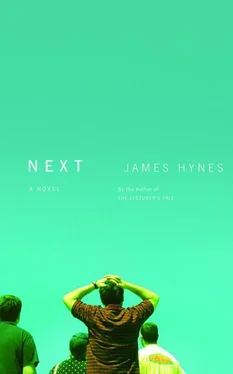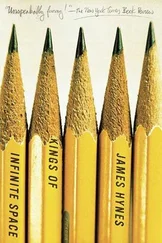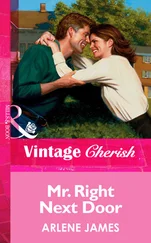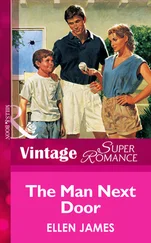Beth used to drag him to operas and gamelan performances and concerts by Tuvan throat singers. They worked out a compromise about live music, by which she would consent to go see Richard Thompson at the Ark, and he would accompany her to hear some jazz performer he’d never heard of at the Firefly. One of their ancient arguments was over a Betty Carter album that Beth loved, called It’s Not About the Melody.
“Actually, it is about the melody,” protested Kevin, a second-generation Sinatra fan.
But with Stella, the roles were reversed. She agreed to go see a Royal Shakespeare Company production of Antony and Cleopatra at the Power Center only after Kevin told her that Captain Picard from Star Trek was playing Antony — and then Stella’s chief reaction was awe at Patrick Stewart’s abs, which you could see from the second balcony.
“I’d jump him in a heartbeat,” she’d said on the walk home.
“He’s in his sixties,” Kevin had said.
“I like older men,” she’d said, linking arms with him. “You know that.”
Stella’s idea of high culture is one those gaudy, fascistic shows in which some formerly charming folk genre — Irish step-dancing or Japanese drummers or Chinese acrobats — is blown all out of proportion into the sort of spectacle that would have fit right in at the Nuremburg rallies. Or a show that takes something vaguely “street” or mildly avant-garde — hip-hop dancers banging trash-can lids, men painted blue whacking each other with plastic tubing — and turns it into Vegas spectacle. Don’t even get him started about Cirque de Soleil. She dragged him all the way to Chicago on his fiftieth birthday — and, to be fair, paid for the whole trip — to surprise him with a bewildering, assaultive show full of faux mysticism and pointless virtuosity. When she asked him if he didn’t just love it, he stifled his gut response: that this was what entertainment would have been like if the Soviet Union had won the Cold War, fantastically fit but facelessly interchangeable performers in revealing outfits doing spectacular but meaningless stunts for a mindlessly bedazzled audience. Even the show’s title wasn’t really a word, he was convinced — vaguely Italian- or French-sounding, but signifying nothing, in the manner of some expensively concocted corporate brand name.
“It was great” is what he actually said, after which she took him back to their room at the Drake—“Don’t worry,” she’d said, “I’m expensing it”—and engaged him in some elaborately silly sex involving feathers, restraints, and a pair of Cirque-style masks. All of which, he had to admit, put the show retrospectively in a much more favorable light, as a kind of public foreplay. She also insisted on playing a CD of Cirque music she’d bought at the show — a rhythmic hash of ethnic music, like the folk tunes of Benetton — and Kevin started to laugh halfway through. But Stella just took his laughter as pleasure — which it mostly was — and redoubled her efforts.
He’s startled again by the sight of himself in another mirrored column, and he wonders if Stella would be caught dead with a man in torn trousers and sweaty, wilted shirt and one blood-soaked sock. He zeroes in on a poly/cotton dress shirt — fuck it, it’s marked down to twenty bucks. He pulls the tie from his pocket and makes sure the shirt matches. Then he pivots on his injured leg and lurches toward the socks. The gray carpet has no give to it, it’s like walking on the green of a minigolf course. From a wall of socks he plucks off a pair for ten bucks — it’s a lot for socks, but they’re antimicrobial, so his sweaty feet won’t smell. Note that, Stella? You can’t go all Queer Eye on me when I buy antimicrobial socks. And even I know you don’t buy a woman an engagement ring at a department store. Who said anything about a ring, anyway? I know how to read a home pregnancy test, too, and I know when I’m off the hook. What’s love got to do, got to do with it?
He finds a cash register where the only apparent survivor of whatever plague cleared out the store, a pudgy, round-faced, lank-haired salesgirl, is flipping through a ring binder. She pushes it to one side as he lays his purchases on the counter.
“Find everything you need?” she says robotically, without making eye contact. “Do you have a Wohl’s charge card?” She flips the trousers to find the tag.
“No.” He should have tried the trousers on first, but fuck it.
“Are you interested in opening a Wohl’s account?” the girl says in her retail zombie monotone, scanning the tags.
“No thanks,” says Kevin. “Do you have a public restroom?”
For the first time, the girl’s bovine gaze flickers at Kevin, and her fingers hesitate over the register. What must he look like? He wonders if she can smell him.
“Up front, by the service desk.” She looks him up and down and says, “Sixty-six fifty-one.”
Kevin fishes for his wallet, plucks out his Visa, and the salesgirl swipes the card with two fingers as if it’s infectious, then holds it out to him at arm’s length, watching him warily. As she scoops his purchases toward a plastic bag, Kevin startles them both by pressing his hand next to hers on top of the clothes, not quite touching. He tugs the trousers out from under her palm. “Where’d you say the men’s room is?”
She lifts her chin over the labyrinth of racks toward the front. Kevin tucks his receipt inside his jacket and cradles his purchases in the crook of his arm. Her eyes slide down to his shoes and all the way up to his face again. “You okay?” she says.
“Never better,” he says, limping away.
Customer Service is off to one side of the store — CUSTOMER CONVENIENCE says the sign, CONVENIENCIA PARA EL CLIENTE — and it’s even more brightly lit than the sales floor. This desk, too, seems to be unstaffed, and as he passes the counter toward the restrooms Kevin feels vaguely guilty, as if he’s stealing the clothes. The men’s room is just as brightly lit as the rest of the store, and it’s aggressively clean, smelling of urinal cakes and floral air freshener. Just inside the door there’s even a framed print of orchids. There are four sinks on the wide counter, with boxes of tissue between them. The Muzak is louder in here, some contemporary pop hit he doesn’t recognize, a young woman with a sharpish voice telling him to “Breathe, just breathe.”
If you say so, thinks Kevin. Avoiding his image in the wide mirror, he casts about for someplace to put his purchases, wishing now he’d let the girl put them in a bag. The counter looks spotless, making him wonder again if anybody ever actually comes into this store, but instead he tilts the baby-changing table down from the wall, inspects it carefully, even sniffs it, and lays down his new clothes. He takes off his jacket, spreads his fingers under the collar, and brushes off any remaining dust. A little rumpled, he thinks, but presentable, and he hangs it on the hook behind the door of the handicapped stall. Then, at last, he confronts himself in the mirror.
In the pastel glitter of the reflected restroom, he sees an admirably slender but pale, round-faced, and baggy-eyed middle-aged man, his formerly crisp shirt wilted and stained under his arms, his forehead damp with sweat, his sandy hair matted along his sideburns and against the back of his neck. The shirt is half-untucked all around his waist, and his ruined trousers hang low like oversized jeans on some teenager. He resists the instinct to tuck in the shirt and tug up his pants, leaning over the sink instead and pushing the button on a faucet, waiting with his hands under the water for it to run hot. Nose to nose with the mirror he sees melancholy eyes and the unsubtle features of a peasant, son of an Irish father and a Polish mother — a Mick and a Polack, Uncle Stan used to say — good-looking enough, he supposes, to hang onto his younger girlfriend, at least for now. But he can already see where his cheeks are going to sag, and the bags under his eyes aren’t entirely the result of heat and fatigue; they are becoming a more or less permanent feature. Face to face with himself, he realizes he looks like somebody’s dad. Not like my dad, though, he thinks. He’s already four years older than his father was when he died.
Читать дальше












